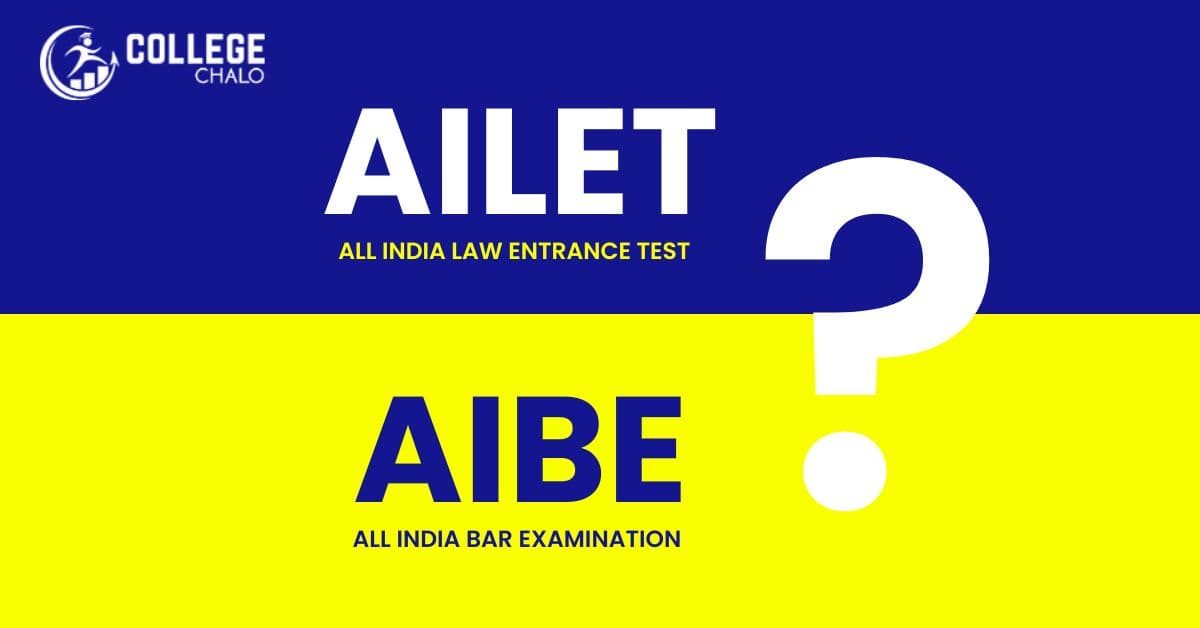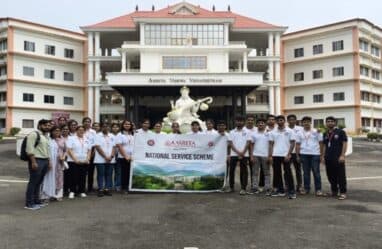Clash of Exams: AILET vs. AIBE - A Tough Choice for Law Graduates

The collision of exam dates of AILET vs. AIBE has emerged as a significant predicament for law graduates, who now find themselves standing at the crossroads of decision-making. The simultaneous scheduling of the All India Bar Examination (AIBE) XVIII and the All India Law Entrance Test (AILET) on December 10, 2023, has created an unparalleled challenge.
This unexpected clash has sent ripples of uncertainty, financial concerns, and a lack of communication among candidates, magnifying the complexities of an already rigorous examination process.

Also, read Top Law Entrance Exams in India 2024

Exam Details: AILET vs. AIBE XVIII
To gain a comprehensive understanding of the gravity of the situation, it is essential to delve into a detailed comparison of the two exams. The table below outlines key details of AILET and AIBE XVIII, shedding light on their distinct purposes, conducting bodies, and the shared exam date:
Exam | All India Law Entrance Test (AILET) | All India Bar Examination (AIBE) XVIII
Exam Conducting Body | National Law University, Delhi (NLU) | Bar Council of India (BCI)

Purpose | Admission to PG law courses at NLU | Assessment for law practice licensure
Exam Date | December 10, 2023 | December 10, 2023
Number of Postponements | No official communication | Multiple, including from October to December

Financial Predicament and Lack of Communication
The clash has given rise to concerns regarding the reimbursement of the ₹3,500 registration fee for candidates who, due to the scheduling conflict, can only appear for one of the exams. This financial investment, coupled with the absence of official notifications addressing fee reimbursement, adds an extra layer of complexity to an already challenging situation. The silence from exam authorities further compounds the uncertainty surrounding this critical issue.


Unprecedented Dilemma: Candidate Perspectives
Yogita Bharti, a law graduate, expresses shock at the application fee of ₹3,500 for each exam, emphasizing the pressing need for clarification from the exam authorities.
Aspirants like Yashraj Srivastava, although accustomed to making choices between exams, find themselves navigating uncharted territory filled with uncertainty and unforeseen challenges.
Financial Investments and Future Aspirations
Ritwik Sharma, a Delhi-based law graduate, originally intended to appear for AILET for the prospect of studying in the capital. However, the unexpected clash with AIBE has introduced unprecedented challenges.
The financial investment and the ensuing confusion arising from the clash are disheartening, particularly considering the potential impact on future aspirations. Avichal Mishra voices frustration over the evident lack of coordination among agencies responsible for conducting these exams, highlighting the oversight and the resultant burden on students.
Call for Coordination and Communication
As students bear the brunt of exam clashes and oversights, there is an urgent need for improved coordination and communication among exam-conducting authorities.
The clash not only impacts the academic aspirations of the candidates but also raises questions about the efficiency of the examination scheduling process. The lack of foresight in anticipating such clashes and the subsequent failure to address them promptly underscores the need for a more streamlined and student-centric approach to exam management.

End Note
In conclusion, the clash between AILET and AIBE XVIII has thrust law graduates into a complex scenario that demands swift attention from the respective authorities. The financial implications, coupled with the uncertainty surrounding fee reimbursement, add layers of stress for candidates who meticulously planned for both exams.
Aspirants eagerly await clarity and a collaborative effort from NLU Delhi and the Bar Council of India to alleviate the unprecedented challenges they currently face. The outcome of this situation will undoubtedly shape not only the academic journeys of these candidates but also influence the perception of how exam authorities manage and mitigate clashes in the future. The conundrum remains unresolved, leaving the fate of countless aspirants hanging in the balance.






